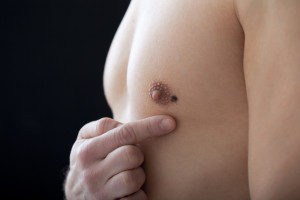- February 2023
- January 2023
- December 2022
- November 2022
- October 2022
- September 2022
- August 2022
- July 2022
- June 2022
- May 2022
- April 2022
- March 2022
- February 2022
- January 2022
- December 2021
- November 2021
- October 2021
- September 2021
- August 2021
- July 2021
- June 2021
- May 2021
- April 2021
- March 2021
- February 2021
- January 2021
- December 2020
- November 2020
- October 2020
- September 2020
- August 2020
- July 2020
- June 2020
- May 2020
- April 2020
- March 2020
- February 2020
- January 2020
- December 2019
- November 2019
- October 2019
- September 2019
- August 2019
- July 2019
- June 2019
- May 2019
- April 2019
- March 2019
- February 2019
- January 2019
- December 2018
- November 2018
- October 2018
- September 2018
- August 2018
- July 2018
- June 2018
- May 2018
- April 2018
- March 2018
- February 2018
- January 2018
- December 2017
- November 2017
- October 2017
- September 2017
- August 2017
- July 2017
- June 2017
- May 2017
- April 2017
- March 2017
- February 2017
- January 2017
- December 2016
- November 2016
- October 2016
- September 2016
- August 2016
- July 2016
- June 2016
- May 2016
- April 2016
- March 2016
- February 2016
- January 2016
- December 2015
- November 2015
- October 2015
- September 2015
- August 2015
- July 2015
- June 2015
- May 2015
- April 2015
- March 2015
- February 2015
- January 2015
- December 2014
- November 2014
- October 2014
- September 2014
- August 2014
- July 2014
- June 2014
- May 2014
- April 2014
- March 2014
- August 2013
- July 2013
- June 2013
- May 2013
- April 2013
- March 2013
- February 2013
- January 2013
- December 2012
- November 2012
- October 2012
- September 2012
- August 2012
- July 2012
- June 2012
- May 2012
- April 2012
- March 2012
- February 2012
- January 2012
- December 2011
- November 2011
- September 2011
- January 2011
- December 2010
- November 2010
- September 2010
- August 2010
- May 2010
- December 2009
Archive for August, 2021
6 Things You Should Know About Male Breast Reduction
 Breast surgery isn’t just for women. Men can be unhappy with their chest as well – it is actually quite common for a man to have a chest that is asymmetric or breast tissue that is enlarged. Gynecomastia (male breast surgery) can help. If you have been thinking about this procedure, here are some things you should know.
Breast surgery isn’t just for women. Men can be unhappy with their chest as well – it is actually quite common for a man to have a chest that is asymmetric or breast tissue that is enlarged. Gynecomastia (male breast surgery) can help. If you have been thinking about this procedure, here are some things you should know.
- Excess breast and fat tissue in men can be very difficult to get rid of. Men most often see swollen tissue in this area when they are teenagers or when they are over 50. Most teenagers, however, lose some of this excess tissue when they get into their 20s.
- This excess tissue can be caused by an underlying medical condition, which your doctor will want to rule out before a gynecomastia procedure (asking a doctor about enlarged male breasts is a good idea anyway, in case it is caused by a medical issue you should get treatment for). It can also be caused by certain medications (such as heart medications, antibiotics, and steroids), hormones, obesity, aging, genetics, heavy drinking, and the use of “street” drugs.
- Many men report that their chest feels swollen and tender because of excess tissue, yet another reason for gynecomastia.
- Gynecomastia can be done on an outpatient basis, and it typically only takes about 2 hours. Local anesthesia or general anesthesia is used. You should be generally healthy before the surgery.
- Incisions for this procedure can be hidden so that visible scars are minimal.
- You’ll start to see improvement in your chest about 2 weeks after the procedure, after the swelling starts to go down. You’ll see the final results in about 3 to 6 months, and the results are permanent as long as you take care of yourself and live a healthy lifestyle.
You don’t have to live with a large chest and any embarrassment that comes with it. Reducing the amount of breast tissue is not a complicated procedure, and it can give you results you can be proud of. Call Weinstein Plastic Surgery Center in Chester, New Jersey, about a gynecomastia procedure. Call (908) 879-2222 to set up a consultation today!
Posted in Gynecomastia on August 15th, 2021
How do you treat enlarged breasts in men?
 If you are a man with enlarged breasts, you may be refraining from certain physical activities due to emotional distress from having the condition. The overdevelopment of men’s breasts is called gynecomastia, and it’s a condition that can affect men of all ages. Read on to learn more about gynecomastia and how to treat it.
If you are a man with enlarged breasts, you may be refraining from certain physical activities due to emotional distress from having the condition. The overdevelopment of men’s breasts is called gynecomastia, and it’s a condition that can affect men of all ages. Read on to learn more about gynecomastia and how to treat it.
What is gynecomastia?
Gynecomastia affects approximately one out of every two men at some point in their lives. Breasts are made up of fatty and glandular tissue. Gynecomastia consists of excess fatty and glandular tissue and can be present in one or both breasts. Sometimes men have excess breast skin as well.
Causes
Gynecomastia is often caused by an imbalance of the hormones estrogen and testosterone, and affects newborns, boys going through puberty and older men. Other causes include genetics, certain types of medication, certain health conditions and weight gain.
Treatment
Weight loss may help somewhat but will rarely alone result in the breast reduction men desire. Reduction mammaplasty is plastic surgery that reduces breast size, improves nipple anatomy and improves chest contours. Liposuction to remove the excess fatty and glandular tissue may be the only thing that’s needed for some patients. Others may need a procedure that involves making an incision around the areola, or the darkened part around the nipple, to remove the nubbin core of breast tissue, suction sculpt surrounding fatty tissue and remove excess skin to lift the areola for a more youthful appearance.
Male breast reduction is an outpatient procedure with local standby or general anesthesia. There is very little downtime required.
Candidates for surgery
If you’ve tried other non-surgical treatments to try to correct your enlarged breasts, you may need surgery. To be considered for surgery, you should be in good physical health, nonsmoking, have a positive outlook, specific goals and realistic expectations for surgical outcomes. It’s important that your breast development has stabilized to avoid future corrective surgery if breasts continue to develop.
If you’re interested in learning more about treatment for gynecomastia, schedule a consultation with Dr. Weinstein by calling (908) 879-2222.
Posted in Gynecomastia on March 15th, 2021
Frequently asked questions about male breast reduction
 If you suffer from gynecomastia, which is when the male breast exhibits abnormal enlargement, then male breast reduction may be the solution for you. Here are some of the more common questions patients ask about this surgical procedure:
If you suffer from gynecomastia, which is when the male breast exhibits abnormal enlargement, then male breast reduction may be the solution for you. Here are some of the more common questions patients ask about this surgical procedure:
What is male breast reduction surgery?
Also known as gynecomastia surgery or reduction mammaplasty, male breast reduction surgery is the surgical correction of overdeveloped or enlarged breasts in men, reducing breast size and flattening and enhancing the chest contours.
What causes gynecomastia?
The causes of abnormally large breasts in men include congenital, developmental, hormonal or medication- or drug-related. The most common cause seen in practice is the use of bulking-up compounds that contain steroids, which influence the abnormal production of estrogens responsible for increasing male breast size. The second most common cause is drug-related. Marijuana, heroin, methadone, amphetamines and prescription drugs turn on estrogen production. Other causes include renal failure, liver failure, starvation, alcohol abuse, loss of testicles, abnormal thyroid hormone production, pituitary abnormalities, adrenal gland abnormalities, HIV and stress.
Who is a good candidate for surgery?
Men who are good candidates for male breast reduction are those whose condition cannot be corrected through more conservative medical treatments. Men who are healthy, nonsmokers and non-drug users with no serious illnesses or medical conditions are good candidates. Candidates are also physically healthy and close to their normal weight.
Can adolescents have male breast reduction surgery?
Surgery is ideal for men whose breast development has stabilized, but adolescents may benefit from surgery. Secondary procedures may be needed in the future if breast development continues.
How is surgery performed?
Surgery can be performed in a number of ways. Liposuction alone can be used for cases that are the result of excess fatty tissue. An excision technique is recommended for men whose glandular breast tissue or excess skin must be removed to correct the problem. The areola can be reduced or repositioned to a more natural contour. Sometimes surgery consists of liposuction and excision to achieve optimal results.
Men who suffer from abnormal breast enlargement do not have to suffer from this condition. To learn more about male breast reduction, please call (908) 879-2222 for a consultation
Posted in Gynecomastia on April 15th, 2020
3 Ways To Spoil The Dad In Your Life This Father’s Day
 If you got spoiled on Mother’s Day, then you know that you have to go big for the father in your life. Whether you’re looking to gift your own dad or the father of your children something unique this Father’s Day, we have got you covered. Rather than gifting the same old golf shirt or tie this year, try something new like a procedure from Dr. Larry Weinstein.
If you got spoiled on Mother’s Day, then you know that you have to go big for the father in your life. Whether you’re looking to gift your own dad or the father of your children something unique this Father’s Day, we have got you covered. Rather than gifting the same old golf shirt or tie this year, try something new like a procedure from Dr. Larry Weinstein.
Gynecomastia Surgery
The last thing you want to say to the father in your life is, “Hey, did you know have man boobs?” But man boobs may actually be due to a medical condition called gynecomastia. Gynecomastia is a hormonal condition that causes men to form breast tissue and affects around 65% of adult men at some point in their lives. During gynecomastia surgery, Dr. Larry Weinstein will remove excess tissue, tighten any skin, and reposition the nipples if needed— leaving the patient with a more masculine appearance.
Botox
Although Botox has primarily been popular amongst middle-aged women, it is gaining more and more popularity among men of all ages as well. If your loved one has started to complain about the fine lines and wrinkles around their eyes and forehead, why not gift them with a Botox treatment from Dr. Larry Weinstein?
Fillers
One of the things that men often complain about when they start to age is having fine lines and wrinkles around their lips or beard line. With dermal fillers, Dr. Larry Weinstein can temporarily fill in these lines to give your loved one a smoother, more youthful looking appearance.
The best way to gift one of these procedures to the father in your life is to schedule a consultation for them and then pay for the service afterward. If you want to learn more about procedures for men, schedule a consultation with Dr. Larry Weinstein at our Chester office and call us today at 908-879-2222.
Posted in Gynecomastia on June 15th, 2018
Gynecomastia – More Common Than You’d Think
 Mention gynecomastia to most men and chances are they’ll respond with a rather blank stare. However, mention the subject of unsightly male breast development and chances are it’s something they’ve heard about or are dealing with. A surprising proportion of the male population lives with one degree of gynecomastia or another. Some have overly large breast tissues, others have uneven breasts, and others deal with sagging.
Mention gynecomastia to most men and chances are they’ll respond with a rather blank stare. However, mention the subject of unsightly male breast development and chances are it’s something they’ve heard about or are dealing with. A surprising proportion of the male population lives with one degree of gynecomastia or another. Some have overly large breast tissues, others have uneven breasts, and others deal with sagging.
It’s really no different from the problems encountered by millions of women. And just like female breast issues, gynecomastia has the potential to be genuinely life affecting for those suffering from the condition and they usually just go on suffering in silence.
Treatment for gynecomastia is relatively simple and genuinely affordable these days. In terms of qualification, any man that’s genuinely interested in improving the shape of his breast tissue for his own peace of mind could qualify by satisfying just a few simple criteria. For example, if you’re of a standard healthy weight, in generally good shape, and your breast tissue is not currently growing or shifting, chances are gynecomastia treatment is a viable option.
For the very best results, it’s also recommended that patients quit any unhealthy habits like smoking or drinking, while at the same time adopting a regime of exercise to preserve the results.
Looks may not be everything, but if your confidence and your life are suffering because of gynecomastia, there’s no reason to suffer in silence.
Posted in Gynecomastia on May 15th, 2015
Explaining Gynecomastia for the Average Man
 Most men have never heard of gynecomastia or what it has to do with them. Generally, the first time you will hear about gynecomastia is if you are diagnosed with it. This disorder refers to a condition in which the male breast tissue becomes enlarged.
Most men have never heard of gynecomastia or what it has to do with them. Generally, the first time you will hear about gynecomastia is if you are diagnosed with it. This disorder refers to a condition in which the male breast tissue becomes enlarged.
Sometimes a temporary aspect of the condition will appear during adolescence when boys experience hormonal changes or in newborn baby boys whose body chemistry has been influenced by mom’s female hormones. The development recedes in baby boys and typically resolves for teenage boys as quickly as three weeks to as long as two years. Excessive stress factors can cause this condition during puberty, as well. No treatment is used in cases of psychological gynecomastia, other than resolving the stress factors.
In older men, the disorder can appear when certain cancers and diseases are involved, specific medications are being taken, or in older males whose testosterone levels have decreased. In particular, it is an enlargement of the male breast tissues, and is usually a disorder associated with an underlying condition. Once that condition is discovered and treated, it will reduce the enlargement of the tissues.
If medical issues are the cause, appropriate therapies should be taken as early as possible. Testosterone replacement might be necessary. In some cases, that can exacerbate the problem. When gynecomastia is discovered, treated successfully and returns with frequency, consult your doctor for surgical or medical treatments.
Young men going through puberty are likely to be more psychologically affected by this condition than very young babies and older men. Parents can suggest counseling during that period of time but it is something that should be discussed with a qualified doctor. One of the deciding factors that will be discussed is how long the condition is expected to last. If chances are good that the disease won’t last long, treatment will probably not be recommended.
Posted in Gynecomastia on April 30th, 2015
Your Male Breast Reduction Questions
Answered! – New Jersey Gynecomastia
Are you one of those guys who find it uncomfortable when going topless due to larger-than-normal breasts? You are probably suffering from gynecomastia, a condition wherein overdeveloped breasts developed in men as a result of hormonal shifts, hereditary factors and drug-induced conditions. Dr. Larry Weinstein of the Weinstein Plastic Surgery offers one of the most effective solutions to treating gynecomastia with a New Jersey male breast reduction surgery. We answer your male breast reduction questions below.
How do I really know if it’s really gynecomastia?
Gynecomastia is mainly characterized by the appearance of excess localized fat and glandular tissue in the chest region. It could occur in one or both of your breasts.
Does it occur often?
Breast enlargement in males approximately occurs in 40 to 60 percent of the entire male population, most of which are undocumented due to fear of being judged or ridiculed about it. Overweight and obese males are most likely to suffer from this condition.
How do I know if male breast reduction surgery is for me?
Initially, you should have the genuine desire to actually have your overly developed breasts removed. Your should also be excellent health condition, relatively normal weight and free from previous allergic reactions to medications. Most of all, your expectations should be relatively realistic. The most excellent outcomes of surgical breast reduction amongst non-smokers as smoking itself can prolong recovery periods.
What things do I need to prepare for pre-surgery?
You may be asked to undergo a series of exams and laboratory procedure pre-surgery. You should also avoid taking medications which could affect surgery outcomes such as aspirin, anti-inflammatory drugs and herbal supplements like ginseng.
What should I expect during recovery?
After the procedure, you will be instructed on how to take care of your surgical dressings, how to reduce infection on the surgical site and what signs to look for which could indicate post-operative infection.
Expect for a small, thin tube to be placed under your skin to help drain excess fluid or blood a few days following a male breast reduction surgery.
If you’re interested in finding out if male breast reduction is for you, set up an initial consultation with Dr. Weinstein today 908-879-2222!
Posted in Gynecomastia, male cosmetic surgery on November 21st, 2012
Request A Consultation

Office Hours
Monday: 9am-6:30pmThursday: 9am-5:30pm
To make an appointment 9-5 everyday.
Please email us for an appointment 24/7 or call our office and leave a message for our staff that will be returned the next business day.
Phone: 908-879-2222
Holiday Hours
Closed: Labor Day
Closed: Memorial Day





